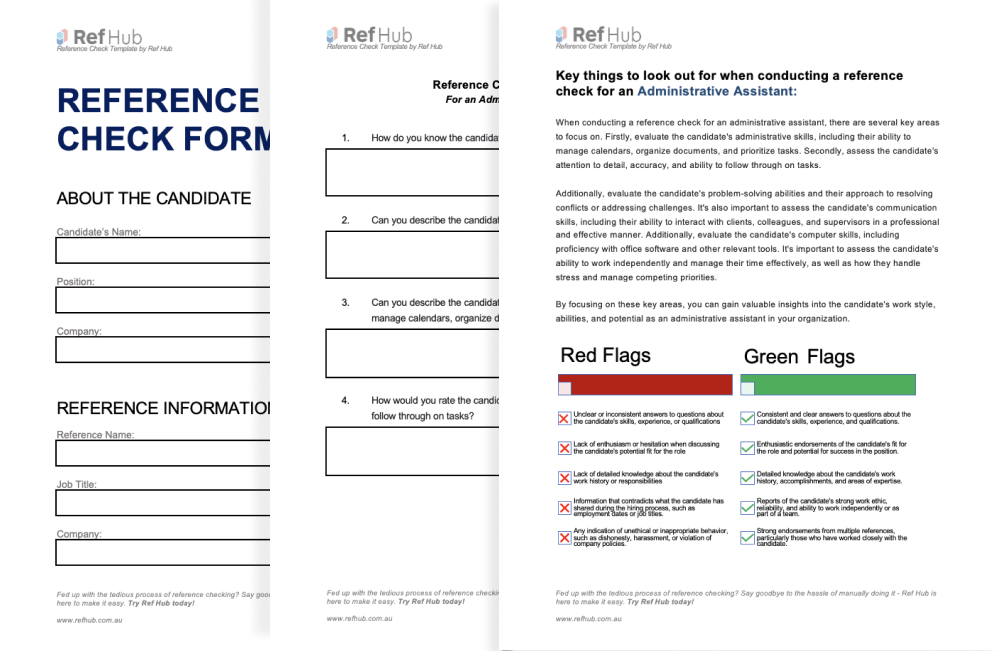How to Hire a Choreographer
Asset Pack free download!





Introduction
Before we delve into the nitty-gritty of hiring a choreographer, let's begin with the basics. A choreographer is a creative professional responsible for designing and teaching dance routines, movements, and sequences. Whether you're planning a dazzling stage performance, a music video, or a team-building exercise, a choreographer can infuse your project with artistic flair.
Primary Duties and Responsibilities of a Choreographer
Understanding what a choreographer does is crucial for crafting an effective job description and conducting interviews. Here are some primary responsibilities of a choreographer:
- Dance Routine Creation: Choreographers are responsible for developing unique dance routines that align with the project's theme and objectives.
- Teaching and Coaching: They teach dance routines to performers and provide coaching to ensure proper execution.
- Collaboration: Choreographers often work closely with directors, producers, and costume designers to ensure a seamless performance.
- Adaptability: Choreographers may need to modify routines to accommodate the skill levels of the performers.
Recruitment Tips for Hiring a Choreographer
Recruiting the right choreographer requires a strategic approach. Here are some tips to assist you:
- Define Your Needs: Clearly outline your project's requirements, including the style of dance, skill level, and the project's timeline.
- Use Specialized Platforms: Look for choreographers on platforms like DanceJobs Australia, as they cater specifically to the dance industry.
- Review Portfolios: Examine the choreographer's portfolio to assess their creative style and previous work.
- Conduct Auditions: Consider holding auditions to witness the choreographer's ability to teach and work with performers.
Full-time vs. Freelance Choreographer
The decision between hiring a full-time or freelance choreographer depends on your project's scope and budget.
Full-time Choreographer
Pros:
- Dedicated to your project.
- Consistent presence for rehearsals.
- Long-term commitment and potential for skill development.
Cons:
- Higher cost with salaries and benefits.
- Limited flexibility for short-term projects.
Freelance Choreographer
Pros:
- Cost-effective for short-term projects.
- Flexibility in scheduling.
- Access to a wider pool of talent.
Cons:
- May juggle multiple projects.
- Less long-term commitment.
Where to Find a Choreographer
Australia offers various avenues for finding talented choreographers:
- Dance Schools and Studios: Many choreographers have ties to dance schools and studios, making them a great source for potential hires.
- Industry Events: Attend dance competitions, festivals, and workshops to network and discover emerging talent.
- Online Job Portals: Websites like Seek, LinkedIn, and ArtsHub frequently list choreographer positions.
Writing a Choreographer Job Description
Crafting a well-rounded job description is essential to attract the right candidates. Make sure to include the following:
- Job Title: Choreographer
- Location: Specify where the work will take place.
- Responsibilities: Detail the choreographer's primary duties, including routine creation, teaching, and collaboration.
- Qualifications: List necessary skills, experience, and education.
- Application Process: Clearly outline how candidates should apply.
Interviewing Choreographer Candidates
Conducting interviews is a critical step in the hiring process. Here's how to approach it:
Structured Interviews
Begin with a structured interview to assess the candidate's experience, creativity, and communication skills. Ask open-ended questions to understand their approach to choreography and their ability to adapt to different styles.
Practical Audition
A practical audition provides candidates with the opportunity to showcase their choreography and teaching skills. This step is particularly valuable for assessing how well they can work with your performers.
5 Common Interview Questions for a Choreographer
- Can you describe your choreographic process and how you adapt it to different genres or styles of dance?
- How do you handle disagreements or creative differences with performers or team members?
- Share an example of a challenging project you worked on. How did you overcome obstacles and ensure the success of the performance?
- What strategies do you use to keep dancers motivated and engaged during rehearsals?
- How do you stay up-to-date with current dance trends and incorporate them into your choreography?
Conclusion
Hiring a choreographer is a critical step in ensuring the success of your dance-related project, and this guide has equipped you with the knowledge and tools to make an informed decision. Whether you opt for a full-time or freelance choreographer, remember to define your needs, review portfolios, and conduct thorough interviews. By following these steps, you'll be well on your way to finding the perfect choreographer to bring your vision to life.
FAQ
Look for creativity, adaptability, strong communication skills, experience in the relevant dance style, and the ability to collaborate effectively.
The cost varies based on factors like the choreographer's experience, the project's scope, and whether they are hired full-time or as a freelancer.
It can be beneficial, as industry-specific experience often leads to a better understanding of the requirements and expectations in the field.
The timeline varies depending on the project's complexity, but it's advisable to start the hiring process well in advance to secure the best talent.

